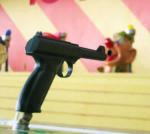What’s your story?
Share and find customer experiences
Connect with the people behind them
Wacktrap is
feedback made social
Trending Content
Russia Officially Declares Beer as Alcohol Bans Sale in Public Schools
by hearit
It’s official: beer is alcohol – Russia’s verified it. For the first time in the country's long history, beer is now classified in the country alongside the likes of vodka rather than categorized as a "foodstuff."
In a country that can outdrink many countries combined, beer has been regulated more along the lines of soft drinks than as an alcoholic beverage.
Russia ranks among the top five heaviest drinkers, in terms of countries. New law from the Kremlin is seeking a crackdown on beer, which has never previously been deemed a potential danger. One in five males in Russia actually die from an alcohol-related death while beer has, ironically, long been deemed a simple “foodstuff.”
The country's residents are known for a substantial alcohol intake, where people strive to keep warm in the frigid climate. The death rate related to alcoholic beverages, or forms of alcohol, is phenomenally high: over half of one million people die annually from causes related to alcohol intake. The country's high death rate rotates near 15 deaths per 1000 people per year, in contrast to the world's average of just under 9. The majority of emergency room visits in Russia are related to alcohol.
Russia is finally placing beer on equal footing with vodka, in a new and historic law that's passed the lower house of Parliament and will restrict the country's future beer sales at night and additionally limit cans and bottles to .33 liters (equivalent to about 11 ounces, or less than the volume of a standard beer can size sold in America).
Beer consumption by Russia's citizens has tripled in only a decade and one-half, the country currently ranking between the third and fourth largest beer market across the world. In just 15 years, the country's population has dipped due to deaths specifically related to alcohol.
The new legislature will also ban beer sales in or near public schools – where teenagers commonly down the beverage during lunch breaks.
Control over classes is about to become a lot harder for Russian teachers and educators.
SPEED UP YOUR ONLINE GROWTH
How To Wack
Take the Tour
Click on any image to start











